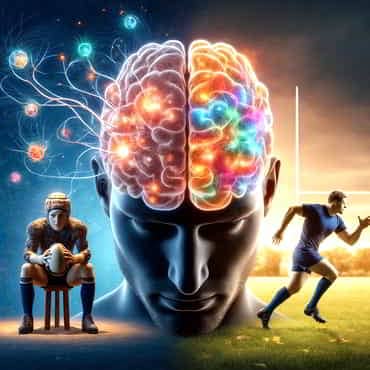Mindful Reflection: The Key to Personal Insight and Growth

Estimated reading time: 7 Min
Explore mindful reflection, its foundational principles, the many benefits for our well-being, and practical steps to add this practice into our daily lives.
Have you ever paused, amidst the hustle and bustle of your day, to ponder when you last took a moment for a deep, introspective reflection?
Nowadays, it’s all too easy to lose ourselves in endless to-do lists and the fast pace of daily life, forgetting the profound power that lies in stillness and contemplation.
Mindfulness offers clarity, insight, and a path towards genuine personal growth.
But what does it take, and how can it serve to unlock our full potential?
Understanding Mindful Reflection
Mindful reflection can be thought of as a way to tune an instrument, where the instrument in question is our own mind.
Just as a musician tunes their instrument to achieve perfect harmony, mindful reflection involves tuning our thoughts and emotions towards harmony with our true selves.
At its core, it’s a practice of bringing one’s attention to the present moment, observing thoughts, feelings, and sensations without judgement.
The Science Behind Mindfulness

The benefits of mindfulness have been well-documented by science (see Resources at the end).
Research shows that engaging in mindfulness practices can effectively rewire the brain, enhancing areas responsible for attention, emotional regulation, and stress management.
It’s similar to how a sportsman trains their body for resilience and agility; mindful reflection trains the mind for mental fitness and flexibility.
This mental conditioning allows for greater resilience, much like how a seasoned rugby player or tennis enthusiast develops physical stamina and tactical acumen through dedicated practice.
The Benefits of Mindful Reflection
One of the most significant benefits of mindful reflection is the deep personal insight it catalyses.
Just as a sailor reads the sea to navigate their course, mindful reflection allows us to navigate the vast ocean of our inner life.
It teaches us to notice the nuances of our thoughts and emotions, leading to a far deeper understanding of who we are and what drives us.
Enhanced Decision-Making
The clarity and calmness cultivated through mindful reflection directly impact our decision-making abilities.
In business, as on the tennis court, strategy and foresight are paramount.
Reflective practice equips us with the mental clarity to assess situations more objectively and make decisions that align with our values and goals.
Improved Emotional Intelligence
Engaging in mindful reflection is like learning to play music with others.
Awareness and sensitivity to the emotional states of oneself and others are crucial for harmony.
This practice enhances our ability to recognise, understand, and manage our emotions, leading to improved relationships and social interactions.
Practical Steps to Incorporate Mindful Reflection into Daily Life
Including mindful reflection in a hectic schedule might seem daunting, but it can be as simple as dedicating a few minutes each day to quiet contemplation.
This is no different from finding 15 minutes each day when learning to play a musical instrument.
Begin with just five minutes of sitting quietly each morning or evening, focusing on your breathing, and observing your thoughts without engagement.
Journaling as a Tool
Keeping a reflective journal serves as a powerful tool for mindful reflection.
It can be a space to process thoughts, feelings, and experiences, similar to composing a personal melody that captures the essence of your inner world.
Start by writing down your reflections for a few minutes each day, noting any patterns or insights that emerge.
Mindful Activities

Certain activities naturally encourage mindfulness, such as practicing golf, where a deep focus and presence in the moment are essential.
Engaging regularly in such activities can enhance your capacity for mindful reflection, seamlessly integrating it into various aspects of life.
By approaching mindful reflection with curiosity and patience, we can unlock a wealth of personal insights and growth opportunities.
It’s an activity of looking inwards towards the landscape of the human mind, leading to a richer, more fulfilling life.
Overcoming Challenges in Mindful Reflection
Incorporating mindful reflection into one’s life isn’t without its hurdles.
Distractions, a critical inner voice, and the simple challenge of making time for practice are common obstacles.
These can again be likened to the difficulties we face when learning a new sport or musical instrument, where the initial awkwardness and frustration test one’s resolve.
The key is to recognise these challenges as part of the learning process.
Setting aside a dedicated time and space for reflection can help mitigate distractions, while adopting a stance of kindness towards oneself can reduce self-judgment.
Staying Motivated
Start by figuring out why you want to practice mindfulness.
The knowledge you have of why you want to look after yourself well will help in maintaining the momentum of a reflective practice that requires motivation.
The practice can be supported by setting small, achievable goals.
Celebrate achievements, no matter how minor they may seem, whether it’s maintaining a daily journal for a week or simply managing to sit quietly for five minutes a day.
Remember, every great musician or athlete started with the basics, gradually building their skills over time.
Consider joining a group or finding a reflection buddy for shared sessions and experiences.
The communal aspect can offer additional support and motivation, much like committing to a sports team or an orchestra.
Summary
Mindful reflection, much like the careful tuning of a beloved instrument, demands patience, practice, and perseverance.
It’s a deeply personal journey that offers profound insights into our thoughts, emotions, and behaviours, leading to enhanced personal and professional growth.
Just as a musician feels the joy of a perfectly harmonised melody or an athlete experiences the thrill of a well-played game, the fruits of mindful reflection are rich with rewards—clarity, emotional balance, and a deeper understanding of one’s self and others.
So, as we manage the complexities of our lives, let’s remember the power of pausing, reflecting, and tuning in to our inner selves.
Remember that the journey of mindful reflection is ongoing, a continuous process of learning, growing, and discovering.
Now, I’d love to hear from you.
How has mindful reflection touched your life?
Are there practices or insights you’ve found particularly transformative?
Share your experiences in the comments below to foster a community of reflection, insight, and growth.
And if you’re looking to dive deeper into the world of personal development and mindfulness, consider subscribing for more articles like this one.
Together, let’s embark on this journey of discovery, embracing the art of mindful reflection to unlock our full potential and lead lives of greater harmony and fulfilment.
😉
Richard
Additional Resources
For those interested in deepening their practice of mindful reflection and expanding their understanding of its principles and benefits, here is a curated list of resources.
These include books, online courses, and apps that have been highly recommended for their insightful approaches and practical guidance:
Books
- “Wherever You Go, There You Are” by Jon Kabat-Zinn
- Kabat-Zinn is a pioneer in this field and offers a comprehensive introduction to mindfulness meditation. Kabat-Zinn’s approachable style makes the practice accessible to beginners and seasoned practitioners alike.
- “The Reflective Mind” by Daniel Goleman
- Daniel Goleman explores the intersection of mindfulness and emotional intelligence, providing readers with strategies to enhance self-awareness and empathy through reflective practices.
- “Mindfulness in Plain English” by Bhante Henepola Gunaratana
- A straightforward and practical guide to meditation that demystifies the process and offers clear, actionable steps for integrating mindfulness into daily life.
Online Courses
- Mindfulness-Based Stress Reduction (MBSR) Online Courses
- Jon Kabat-Zinn developed this MBSR course, which is now available online, offering an immersive introduction to mindfulness meditation aimed at reducing stress and enhancing well-being.
- “The Science of Well-Being” by Yale University (Coursera)
- Professor Laurie Santos explores the psychological underpinnings of happiness, including practices like mindful reflection that can increase personal joy and satisfaction.
- Headspace Guide to Meditation (Netflix)
- An engaging series that combines the convenience of home viewing with expert guidance on meditation makes the practice both understandable and approachable for a wide audience.
Apps
- Headspace
- A user-friendly app that offers guided meditations, including sessions focused on mindfulness and reflection, is suitable for both beginners and experienced practitioners.
- Calm
- Provides a variety of meditation exercises aimed at promoting relaxation, better sleep, and increased mindfulness, with programmes tailored to different needs and experience levels.
- Insight Timer
- A free app featuring thousands of guided meditations from mindfulness teachers around the world, covering a wide range of topics and practices, including mindful reflection.
Websites
- Mindful.org
- An online resource offering articles, practices, and advice on mindfulness, meditation, and related topics, suitable for those looking to start or deepen their practice.
- The Greater Good Science Centre at UC Berkeley
- Provides research-based tools and training for a happier, more meaningful life, including resources on mindfulness and reflective practices.
Each of these resources offers a unique perspective and approach to mindful reflection, enabling you to explore this transformative practice in a way that resonates with your personal journey towards insight and growth.






